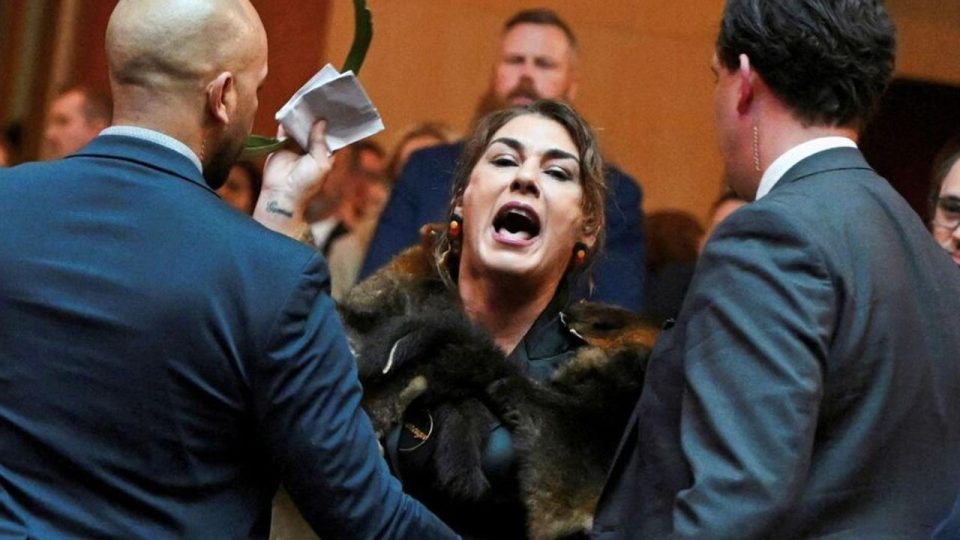Australian lawmakers have voted to censure Senator Lidia Thorpe, an Aboriginal representative, for heckling King Charles during his visit to Canberra last month, expressing “profound disapproval” of her actions.
Thorpe shouted, “you are not my King” and “this is not your land” shortly after the King addressed the Great Hall of Parliament, aiming to highlight the impacts of British colonization. The Senate’s censure, which passed 46-12, labeled her actions as “disrespectful and disruptive,” suggesting they disqualify her from representing the chamber in any official delegation.
While censure motions are politically symbolic and do not have legal implications, Thorpe remarked after the Senate vote that she had been denied the opportunity to respond in the chamber due to a flight delay. “The British Crown committed heinous crimes against the first peoples of this country… I will not be silent,” she declared.
Thorpe’s protest drew immediate backlash from across the political spectrum and criticism from some prominent Aboriginal and Torres Strait Islander leaders. However, she also received support from activists who argued that her actions shed light on the struggles of Australia’s Indigenous peoples, who continue to face significant disparities in health, wealth, education, and life expectancy compared to non-Indigenous Australians.
Despite the protest, King Charles received a warm welcome from Australian crowds during his five-day tour with Queen Camilla. Prime Minister Anthony Albanese noted the King’s respect for Australians, even amid discussions about the future of Australia’s constitutional relationship with the crown.
Thorpe has a strong history of Indigenous activism, drawing global attention in 2022 during her swearing-in ceremony when she referred to Queen Elizabeth II as a colonizer, prompting her to retake her oath after facing public criticism.
Last year, a referendum seeking to grant Aboriginal and Torres Strait Islander peoples constitutional recognition was decisively rejected, with both sides of politics quickly moving on after a contentious campaign, leaving uncertainty about future policy on Indigenous issues. While data suggests a majority of Aboriginal and Torres Strait Islander people voted ‘Yes,’ support was not unanimous, and Thorpe served as a prominent ‘No’ campaigner, criticizing the proposed measure as tokenistic.
Credit: BBC News




